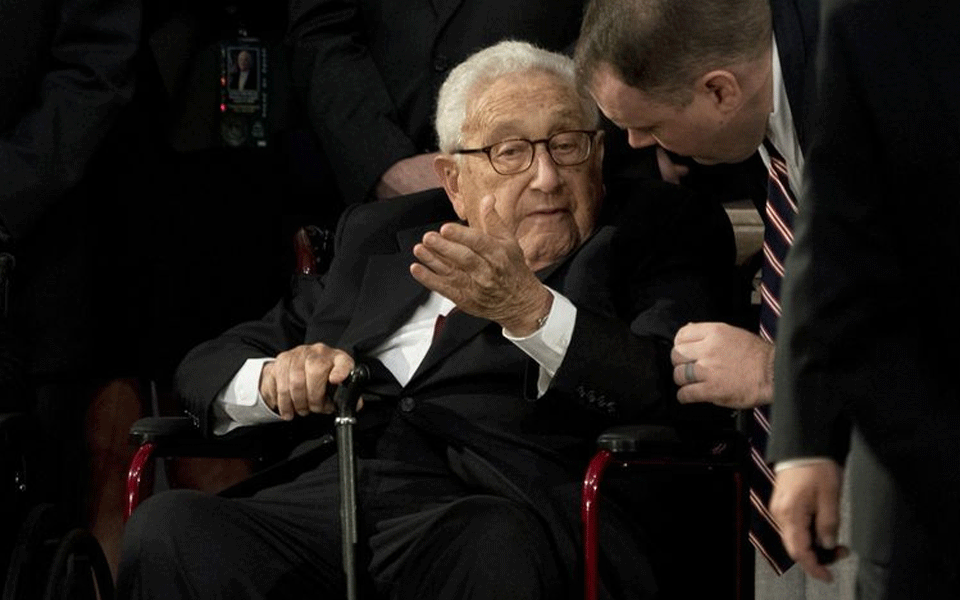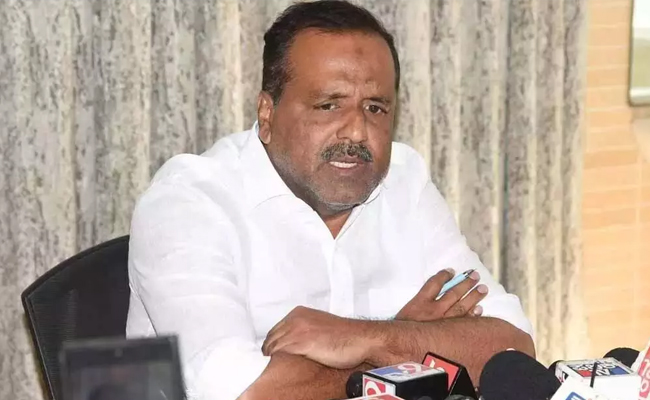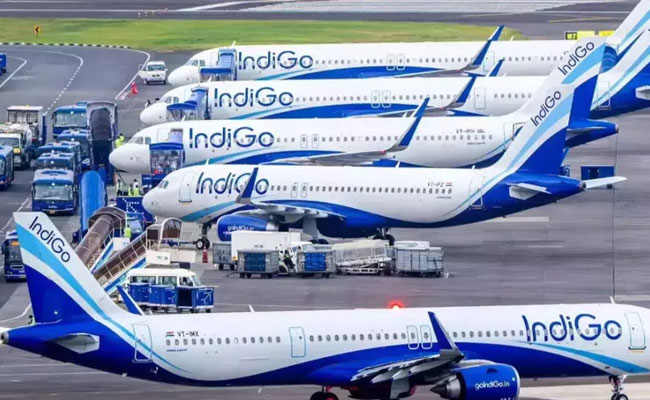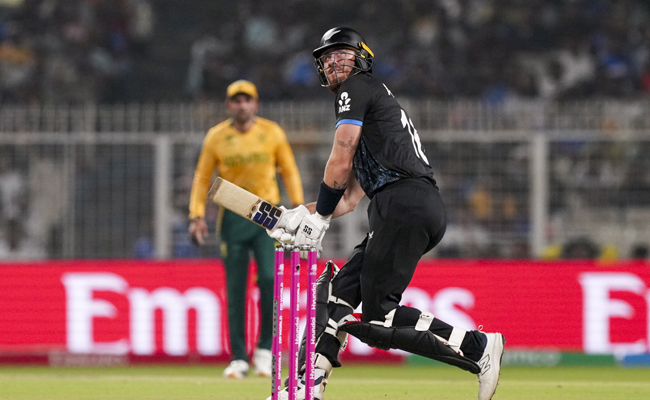New York,Oct 19: New York University students heckled and disrupted an appearance by Henry Kissinger on Tuesday, accusing the former US Secretary of State of complicity in war crimes and crimes against humanity.
Kissinger, now 95, was wheeled into NYU’s Stern School of Business on Tuesday evening, where he appeared as part of the school’s speaker series ‘In Conversation with Mervyn King.’
Meanwhile, protesters – some of them members of the International Socialist Organization – gathered outside to denounce Kissinger’s checkered history of bloody foreign policy positions, including his support for Chilean dictator Augusto Pinochet in the 1970s, under whom some 80,000 political opponents were jailed and at least 3,000 executed.
Inside, Kissinger was repeatedly interrupted by left-wing protesters, with the first shouting “Henry Kissinger, on behalf of the International Criminal Court, you are a war criminal, you have committed genocide against the people of the world!”before being escorted out by security.
Comrades at NYU disrupting Henry Kissinger’s talk at the Stern School of Business. #NoWarCriminalsAtNYU pic.twitter.com/FbgkmXGbY3
— Esor? (@EsorFas) October 16, 2018
“Henry Kissinger, you have blood on your hands,” another protester piped up. “What about the people of Chile? LIve with the results of what you’ve done.” Like the first interruptor, the second was removed, as the crowd’s boos and jeers became louder. The same thing happened when a third protester spoke up.
“You deserve to answer to war crimes!” another shouted, before telling the venerable statesman “You deserve to go to jail and then rot in hell!” Heckling and chanting continued as Kissinger departed the event later that evening.
Throughout Kissinger’s long diplomatic career, he was lauded for easing US relations with the Soviet Union and China, as well as negotiating the end of the Vietnam War. However, he has also been criticized for orchestrating a US-sponsored coup in Chile, giving the Argentinian junta free rein to commit mass murder and human rights abuses after the 1976 coup, and supporting Pakistan’s genocide against Bangladesh in 1971.
Kissinger also oversaw the escalation of the Vietnam War into Laos and Cambodia, which devolved into a four-year bombing campaign that killed as many as 100,000 civilians. Worse, it cleared the way for Pol Pot’s Khmer Rouge to take power in Cambodia’s ensuing power vacuum, and commit genocide of an estimated 1.5 million people.
Several student groups had called on NYU to cancel the invite-only event, writing: “When this man is publicly celebrated as a wise sage of diplomacy, national security, and foreign affairs, his despicable hawkishness is implicitly endorsed.”
The university responded that “The free exchange of diverse ideas and viewpoints is a fundamental value at NYU. As such, an invited speaker should be able to be heard without disruption.”
courtesy : rt.com
Let the Truth be known. If you read VB and like VB, please be a VB Supporter and Help us deliver the Truth to one and all.
Mangaluru (Karnataka) (PTI): Karnataka Legislative Assembly Speaker U T Khader on Wednesday sought an inquiry after a large number of Aadhaar cards were found on the banks of the Nethravathi River here.
The cards were found at Farangipete in Pudu village of his Mangaluru Assembly constituency.
Khader, in a note to the Project Manager of the Unique Identification Authority of India (UIDAI), Bengaluru, sought immediate intervention and necessary action against those responsible.
In the note dated March 4, he said that local residents noticed the Aadhaar cards along the riverbank on March 3.
Following information received from the public, the Pudu Gram Panchayat president and villagers collected the Aadhaar cards found scattered in the area. They subsequently brought the matter to his attention and the concerned authorities, he said.
Expressing concern over the incident, the Speaker has directed that a thorough investigation be conducted to ascertain how such a large number of Aadhaar cards ended up on the riverbank and to identify those responsible.
He instructed officials to initiate appropriate legal action through the concerned department at the earliest.





